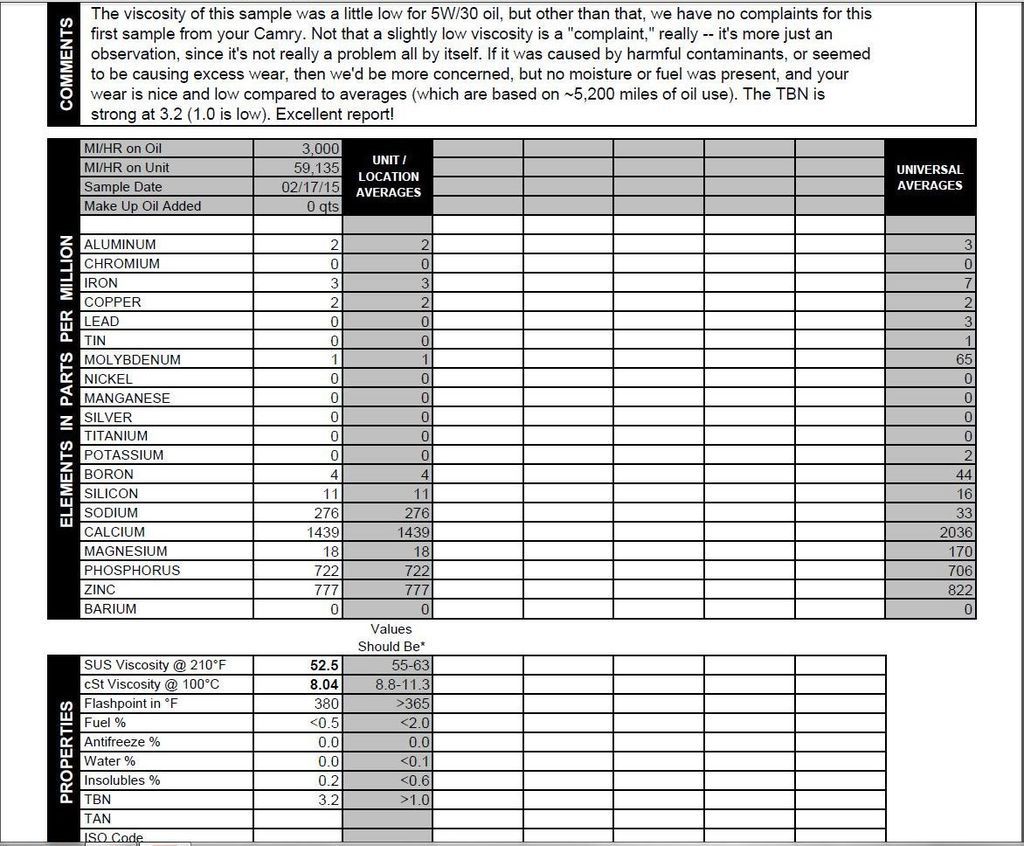Hi. I would greatly appreciate some feedback on this UOA. The car is a 2001 Toyota Camry with a 3.0L V-6 1MZFE engine that has spent it's entire life in the northeast. I have always used conventional oil since it was purchased new and it currently has 60,000 miles on it. This particular sample is Valvoline (CONVENTIONAL) 5w30, it had a production date of July 2011, and I changed it after 3,000 miles. I forget the exact time I did the change, but I want to say October or November of 2014 I think. The car is driven hard, but maintained well. Being in the northeast I tend to warm this car up via remote start in the winter months so it does a fair amount of idling. The oil filter used was a Napa Gold. Occasionally I switch from Valvoline to Castrol 5w30 conventional when I see a sale. Thanks for the help!


Last edited:


